Both Mallory and Irvine died on the mountain.
George Mallory’s body was discovered in 1999, but Irvine’s was never recovered.
The new documentary, Nat Geo’sLost on Everest, follows an expedition to find Irvine and the cameras.
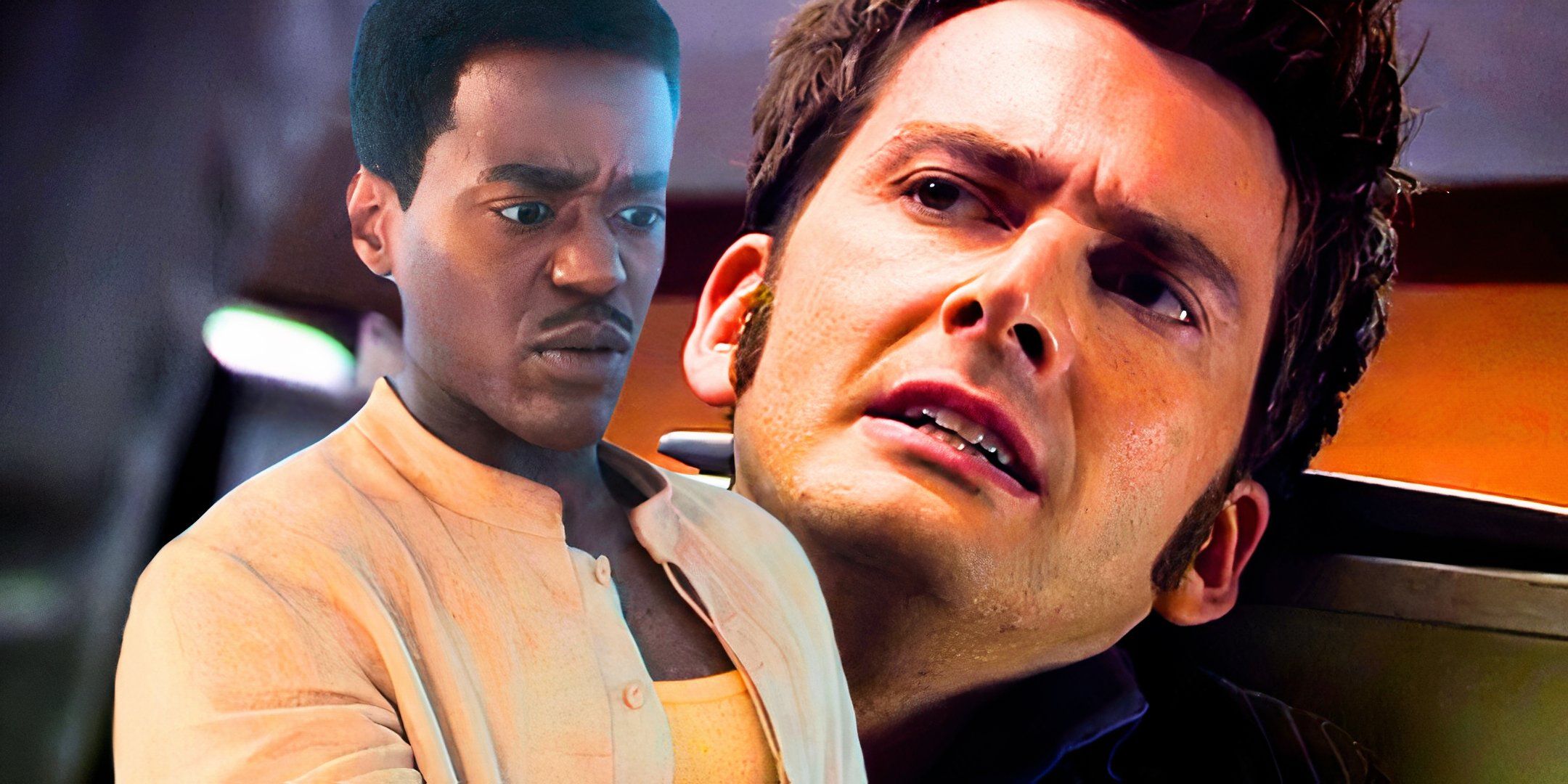
Lost on Everestdebuts June 30 on NatGeo.
This film is just beautiful.
It’s a weird combination of things that are deadly, but also intrinsically beautiful, for sure.
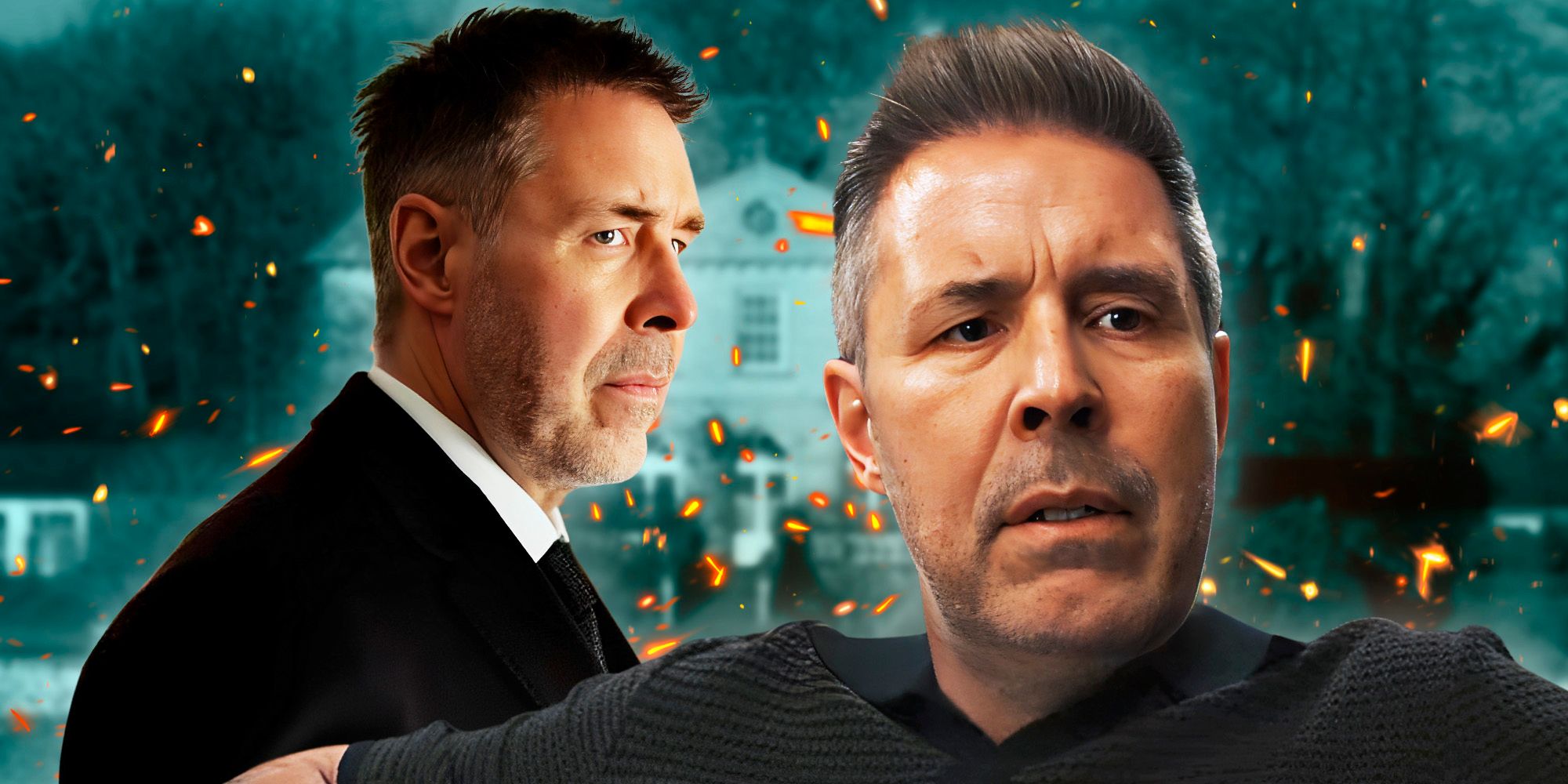
You say that “Climbing Everest is not true exploration.”
Is that because it’s about just reaching the summit, or did you mean something else?
I think I said that it wasn’t true exploration early on because there are so many people there.
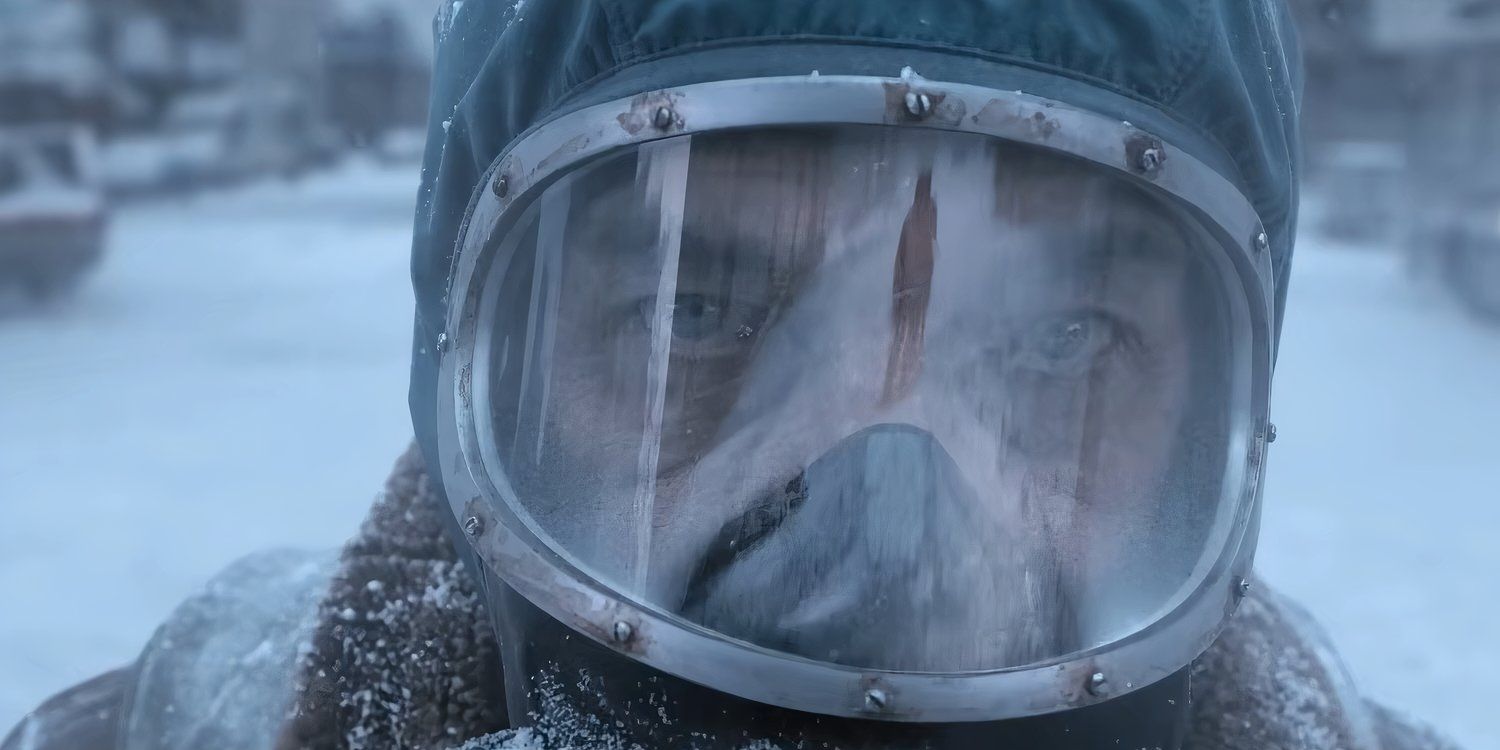
My opinion had changed by going into it.
Is that an outlier, or does that happen every season these days?
I think it happens just about every season these days.
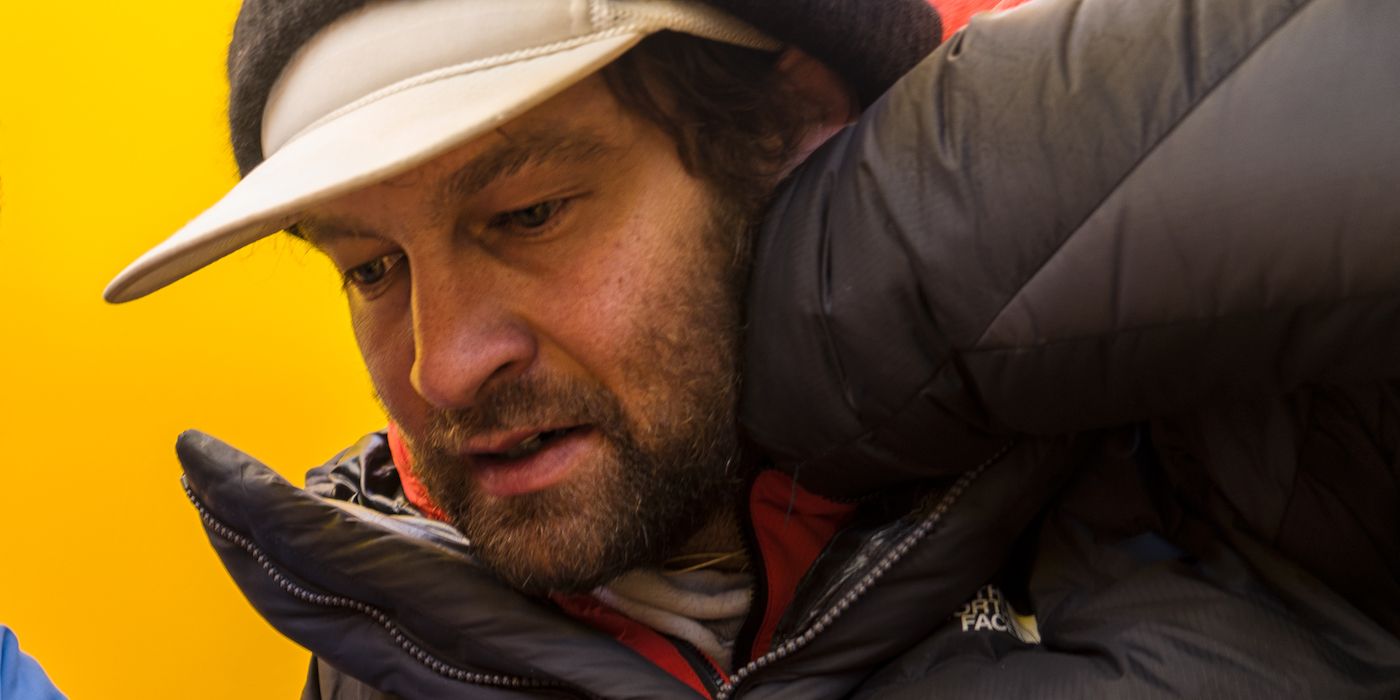
There’s only a few weather windows that work, and everyone tends to go for the same one.
Because of that photo that went so viral.
When we went up high on the mountain, we were the only team on either side.
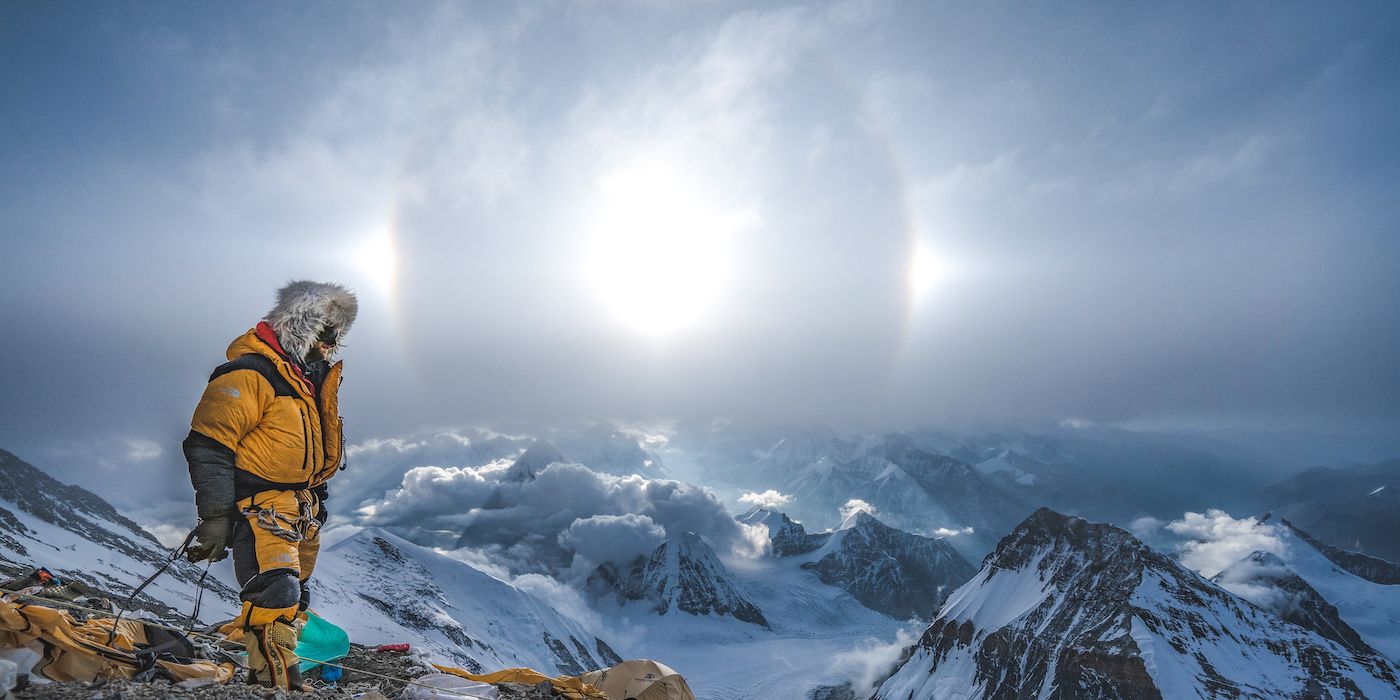
We were able to see both the beauty and the beast of it all.
They wore burlap and gabardine, and they didn’t even have crampons at that point.
And then they got to India, and they were going overland for months.
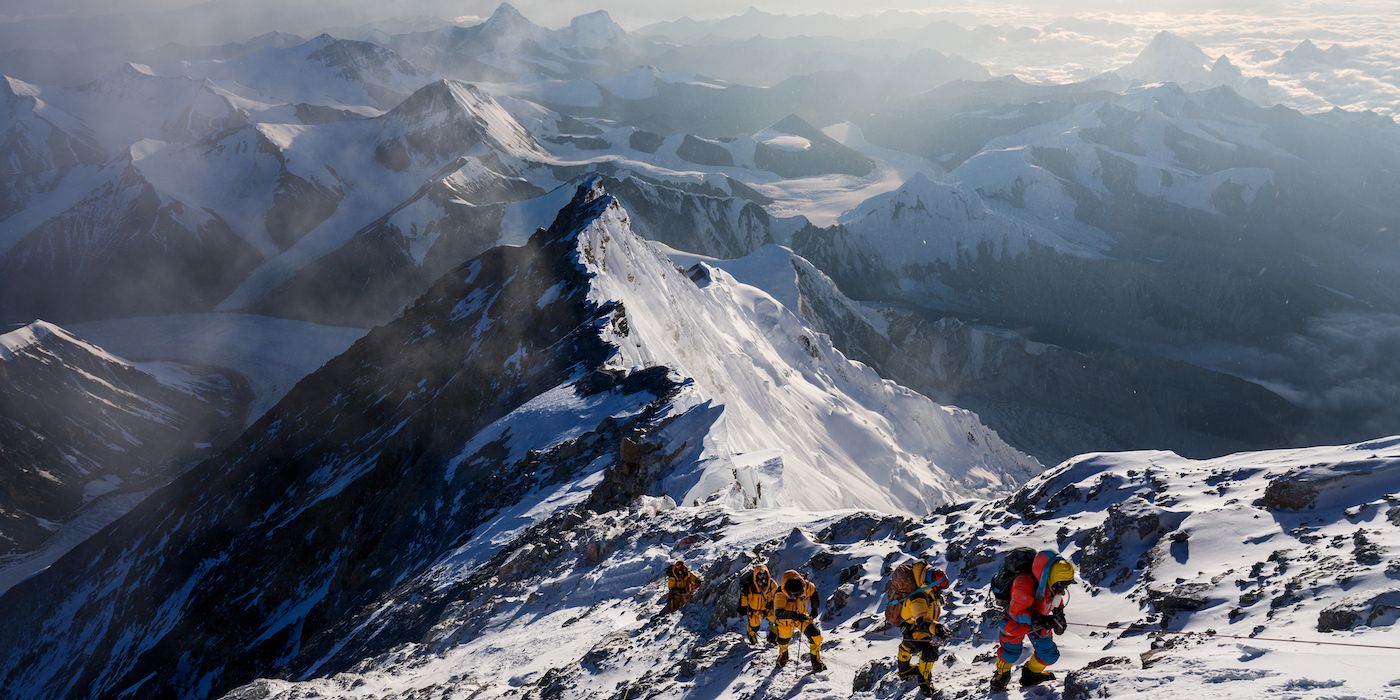
There was this unseen expedition to even get to the base of the mountain.
Yeah, we were pretty impressed about how far they made it, potentially even to the summit.
A big part of the story is about cameras possessed by Irvine.
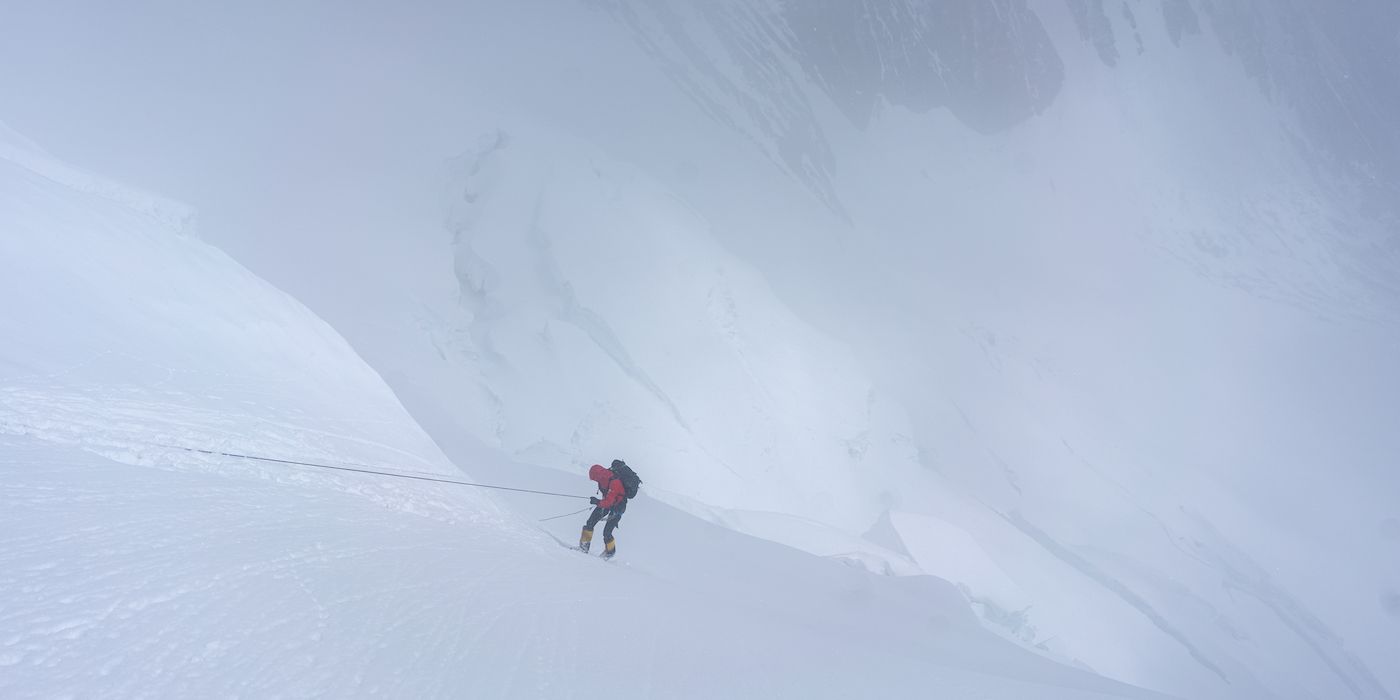
Are those cameras still the absolute “holy grail” of climbers?
It’s a pretty special thing.
We know that camera exists and has photos on it.
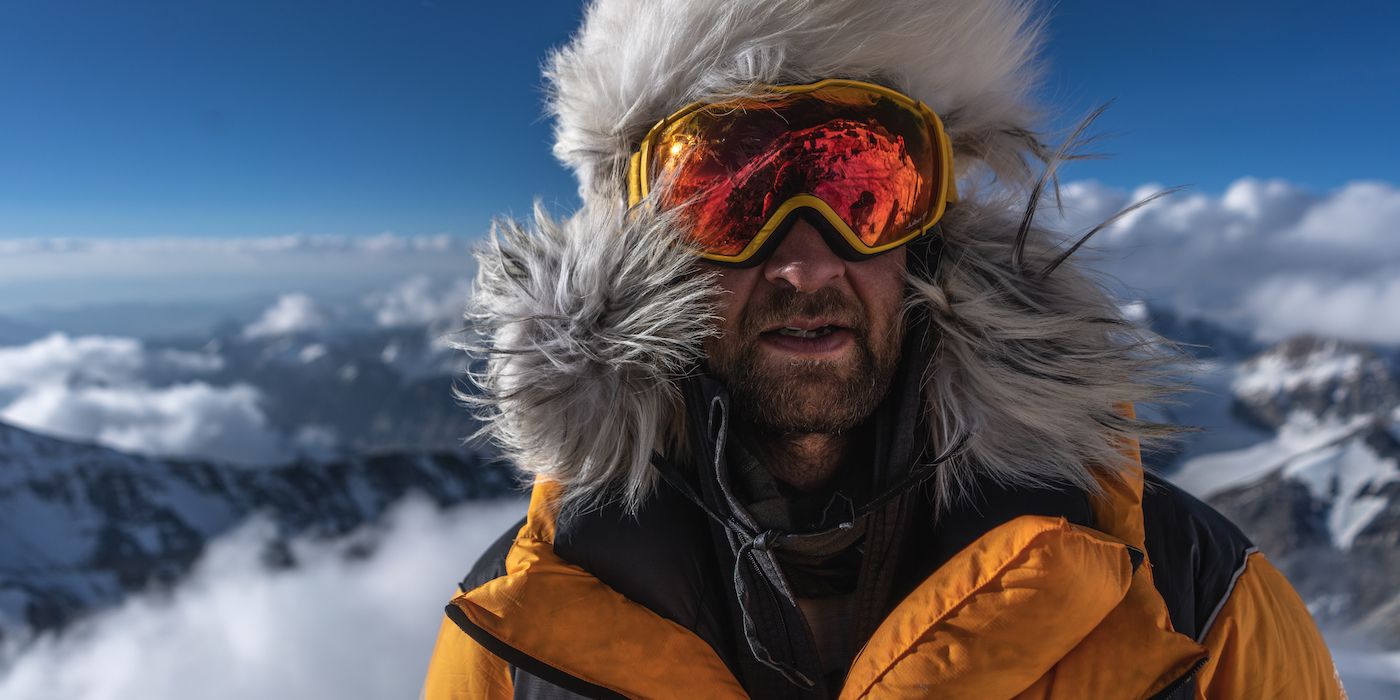
They are high altitude workers.
It’s important to note that Sherpas are not just high altitude porters.
They are an ethnicity.
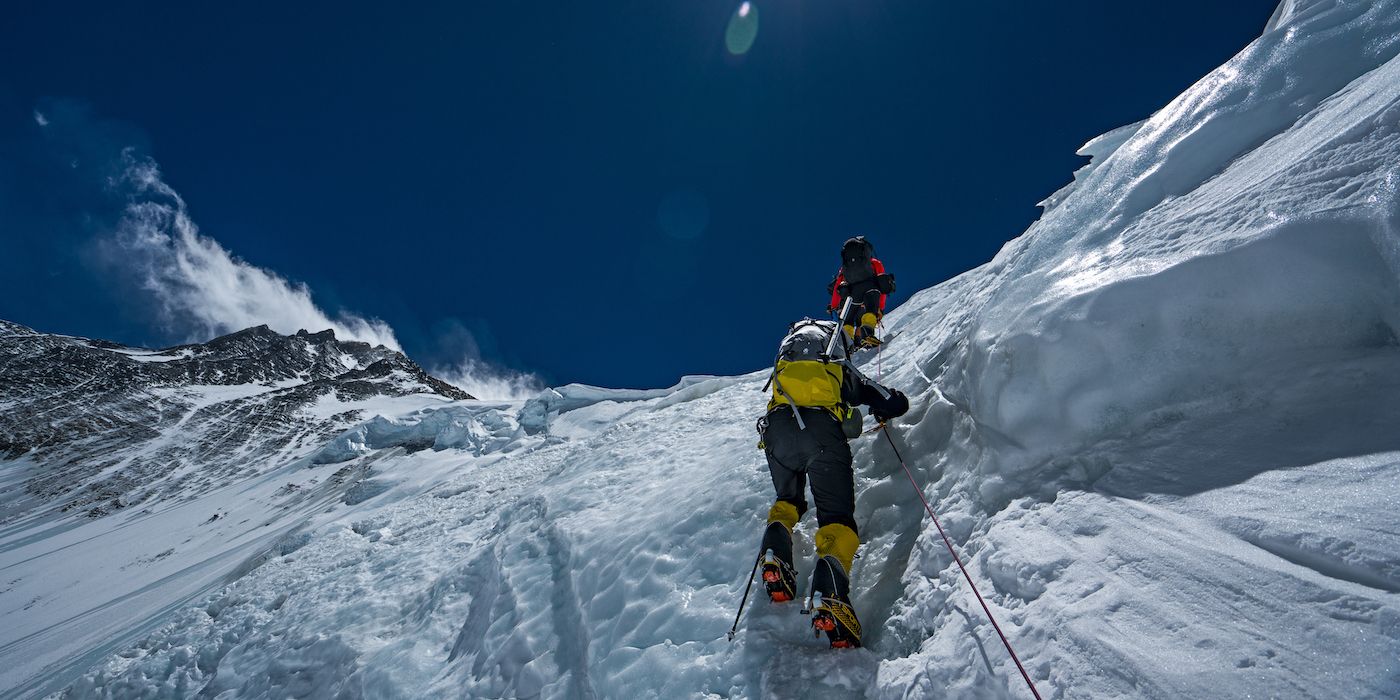
So we basically went to the summit for them.
Didn’t really have much of a choice.
It was also kind of a really… We thought it was poetic, in a way.
Historically, none of these climbs happen without the indigenous people, the Tibetans.
They can carry loads and do a lot of the heavy lifting.
And we have that moment on our expedition, but it didn’t make it into this film.
Even when Mark goes off-script, so to speak, to make that last push.
I’m gonna change the subject a big…
So, you had a stroke on a mountain?
Um, correct, yes.
Can you talk a bit about that if it’s not already well-tread territory?
No, it was a while ago, but yeah.
Altitude has always been a big question mark for me.
But really, you never know until you go up there.
I think that made it seemingly a lot harder for me.
On top of that, my oxygen regulator malfunctioned when we were going towards the summit.
The combination of all those things made it one of the hardest climbing days I’ve ever had.
No matter who you are,the altitude is the ultimate evening of the playing field.
It doesn’t matter who you are, it’s going to be really hard, really painful.
The route was steeper and more serious than we thought, as well.
When I get have a stroke doing something, I don’t do that thing anymore.
That’s the hardest question.
People always ask, why do you suffer?
For me, exploration has become more about what you bring back to share than the exploration itself.
Or make them understand the answer to that without having to ask the question.
It’s truly a complex system that we have going on, there at the roof of the world.
Do you have any personal milestones that you want to accomplish?
Kind of like the “next thing” you want to do?
I think it’s a challenge that we’re all facing.
It’s how to turn any work you do as a creative into something more meaningful for positive change.
Things that are not in the limelight of Everest.
There’s a man who was lynched in the 1960s, but actually survived.
I think there’s a breadth of storytelling, and there’s a huge responsibility there.
Next:Richard Ladkani Interview: Sea of Shadows